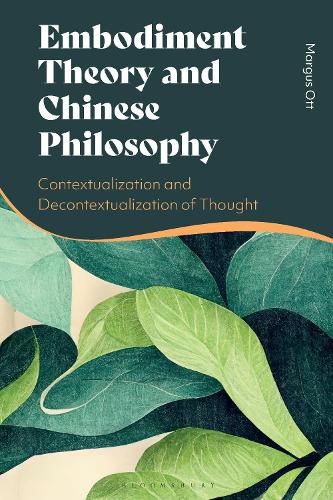
Embodiment Theory and Chinese Philosophy: Contextualization and Decontextualization of Thought
(Paperback)
Available Formats
Publishing Details
Embodiment Theory and Chinese Philosophy: Contextualization and Decontextualization of Thought
By (Author) Margus Ott
Bloomsbury Publishing PLC
Bloomsbury Academic
19th February 2026
United Kingdom
Classifications
Professional and Scholarly
Non Fiction
Philosophy: epistemology and theory of knowledge
East Asian and Indian philosophy
181.11
Physical Properties
Paperback
232
Width 156mm, Height 234mm
Description
This book analyses some of the seminal texts of the Chinese tradition in light of the embodied tradition: the Analects of Confucius, the Zhuangzi, and the Treatise on Music. Margus Ott's study shows how they exemplify aspects of embodiment theory while highlighting others that have been neglected in contemporary work. Ott also develops far-reaching possibilities of an embodied philosophy.
The embodied understanding did not go unchallenged in Ancient China. There were important counter-currents, most notably the Mohists and the so-called Legalists. It has been argued that this challenge set the Chinese philosophical tradition in motion. By using embodiment theory Ott demonstrates how these ideas can be seen as a decontextualizing tendency of thought that plays an important role in human affairs.
Reviews
Margus Ott critically examines traditional Western epistemologies, noting their abstract, decontextualizing nature, and contrasts them with Chinese philosophy. He explores how knowledge intertwines with embodied context, revealing how transcending physical forms can lead to an integrated understanding of body and mind, offering alternative ways of experiencing and being in the world. * Jana S. Roker, Professor of Chinese Philosophy, University of Ljubljana, Slovenia *
Embodiment Theory and Chinese Philosophy breathes life into the early Chinese traditions through the lens of embodiment theories. Otts multifaceted analysis resists a universalised account of the Chinese traditions, thereby providing rich, nuanced and novel insights. Here is Chinese philosophy, embodied. * Kayn Lai, Professor of Philosophy, University of New South Wales, Sydney, Australia *
Margus Otts Embodiment Theory and Chinese Philosophy breaks new ground by showing how Chinese thought is embodied, embedded, and affective, rather than disembodied, decontextualized, and contemplative. Otts wide-ranging approach skillfully synthesizes not only Chinese and Western philosophy but also discoveries in anthropology and cognitive science, giving us an exciting new perspective on ancient texts and their relevance to the modern world. * Bryan W. Van Norden, James Monroe Taylor Chair in Philosophy, Vassar College, USA *
Author Bio
Margus Ott is a researcher at Tallinn University, Estonia. He has performed previous research in Taiwan and Xiamen with the National Taiwan University.
